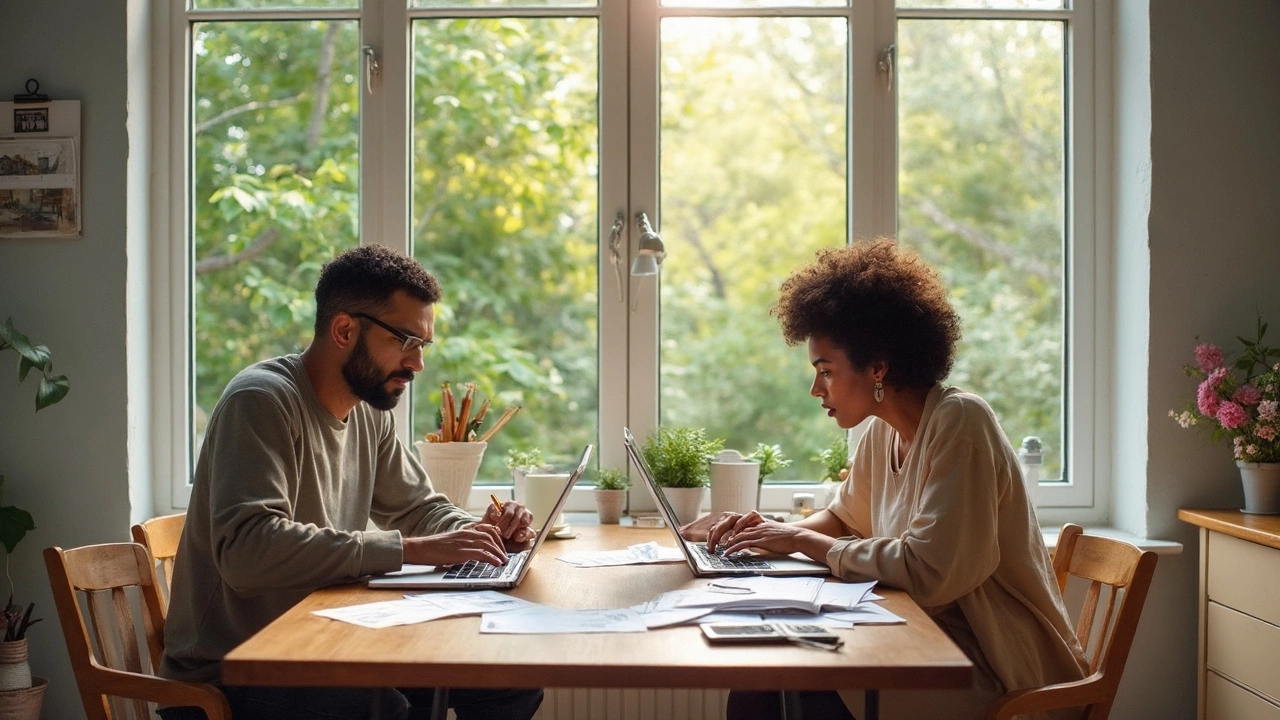Housing Affordability Made Simple
Feeling like a home is out of reach? You’re not alone. Between rising prices and strict mortgage rules, many people wonder how to actually afford a place to live. The good news is there are concrete steps you can take right now—no magic formula, just practical moves.
Start With the Down Payment
The biggest hurdle for first‑time buyers is often the deposit. While the classic 10% rule still shows up a lot, you can often go lower. Some lenders accept 5% if you have a solid credit score, and government‑backed schemes may let you put down as little as 3%.
Tip: Save automatically. Set up your bank to transfer a fixed amount each payday into a separate “home fund” account. Even £100 a month adds up faster than you think.
Another shortcut is down‑payment assistance programs. Look for local grants or loans that cover part of the deposit—many are aimed at first‑time buyers with modest incomes.
Consider Shared Ownership
Shared ownership lets you buy a share of a property—usually between 25% and 75%—and rent the rest. It cuts the amount you need to borrow, which means a smaller deposit and lower monthly payments.
How it works: You purchase your share outright, then pay rent on the remaining portion. Over time you can buy more shares, often called “staircasing,” until you own 100%.
Be aware of the extra costs: service charges, rent, and sometimes higher interest rates. Still, for many people it’s the only realistic path onto the property ladder.
Budget Wisely on a Low Income
If you earn around £30k a year, buying a home isn’t impossible. Focus on three numbers: your gross income, the mortgage you can afford, and the total household costs (including utilities, council tax, and any pet rent).
Use a simple rule of thumb—your mortgage payment should be no more than 30% of your net monthly income. Plug that into a mortgage calculator to see the price range you can target.
Don’t forget hidden expenses. Pet rent, for example, can add £30‑£50 a month. Some landlords will waive it if you offer a higher security deposit or prove your pet is well‑trained. Always ask before you sign.
Boost Your Credit Score Quickly
Lenders look at credit scores before approving a loan. A score above 700 opens the door to better rates. Pay down any existing credit‑card balances, keep old accounts open, and avoid new credit applications in the months leading up to your mortgage request.
Take Advantage of Expert Help
Finding the right real‑estate agent can shave weeks off your search. Look for agents who specialize in affordable housing or shared ownership—they’ll know where the best deals hide.
Ask them: “What affordable schemes are available in Florin Court?” and “Can you show me properties that fit my budget and down‑payment limit?” A good agent will answer with concrete listings, not vague promises.
Bottom line: housing affordability isn’t a myth. By lowering your deposit, exploring shared ownership, budgeting smartly, and using expert help, you can turn the dream of a home into a real plan. Start with one small step today—set up that automatic savings transfer or call an agent about shared‑ownership options. Your future home is closer than you think.

How Much House Can I Afford on a 100K Salary?
Buying a home on a $100,000 salary is more accessible than it seems when you break it down logically. This article offers crucial insights into your budget planning, helping first-time buyers determine just how much house they can afford comfortably. We'll explore key calculations, potential pitfalls, and practical tips to guide informed decisions. Understanding your financial limits is the first step toward landing your dream home.